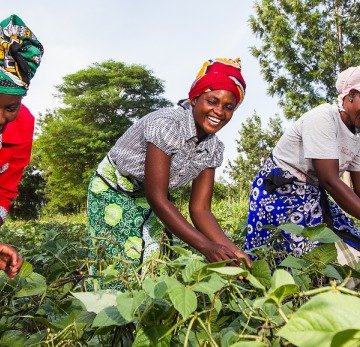- About
- Topics
- Picks
- Audio
- Story
- In-Depth
- Opinion
- News
- Donate
- Signup for our newsletterOur Editors' Best Picks.Send
Read, Debate: Engage.
In Africa, women provide approximately 75% of total agricultural labour, representing two thirds of the entire population, while producing 90% of all the food in the continent. Yet that is as far as the good news go. The very same women own a paltry 1% of land and can only access, at best, 7% of formal credit because to finance without land documents as collateral access is a nearly impossibility.
This is still a prominent stagnation across African countries, even as numerous studies show that investing in women farmers increases overall crop production.
Still, as population burgeons and more men find jobs off the farm, women have become the de facto farm managers. But is the world paying attention to the role increasingly taken on by women, namely that of feeding this ballooning population?
Farming has, in many instances, been romanticised as rewarding, yet it remains a labour of love for millions of women who have to contend with physical injuries from carrying heavy loads and an array of emotional problems. Studies indicate that up to 43% of women in farming have reported back pains at one point in their ventures.
When it comes to celebrating the farming gains, the actual hands that toil rarely get recognition. Farm proceeds usually go to the owner of the land who in most instances is the man. Transforming food production to meet the demands of the 21st century requires empowerment and policies that give women a louder more inclusive voice, while placing them at the driver’s seat of the food agenda.
Tackling hunger requires tackling the dynamics that keep women outside of research institutions and leadership bodies where agricultural policy decisions are made. So building the capacities of women in agricultural science and development and nurturing institutional cultures that help to retain them is crucial.
A society that doesn’t prioritise the needs of the constituency that feeds it, has not only failed itself, but also its children and future generations.
Photo: Farm Africa
